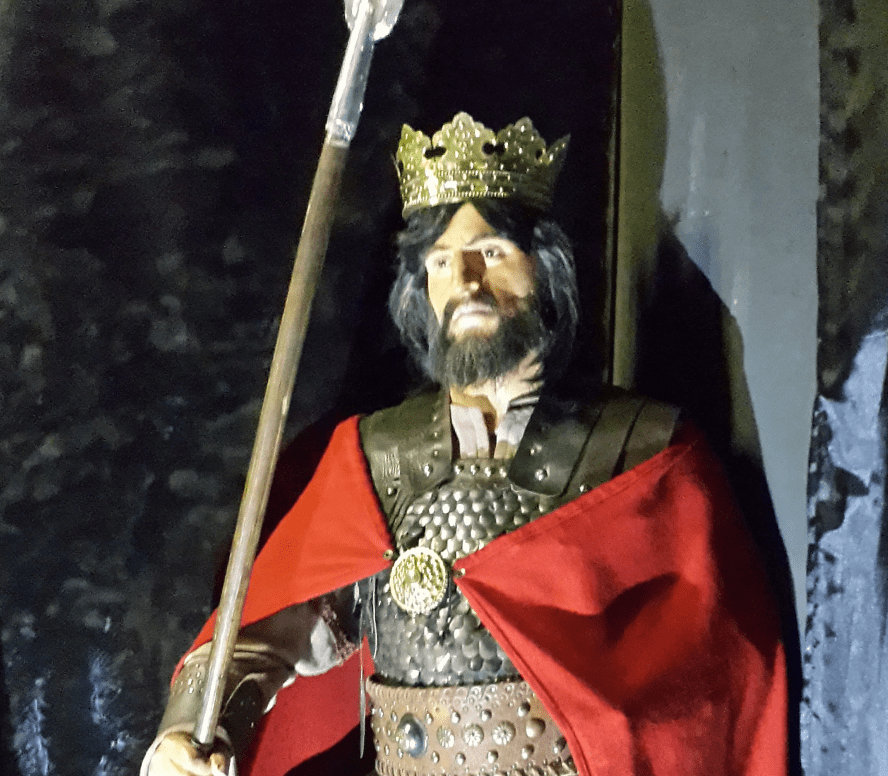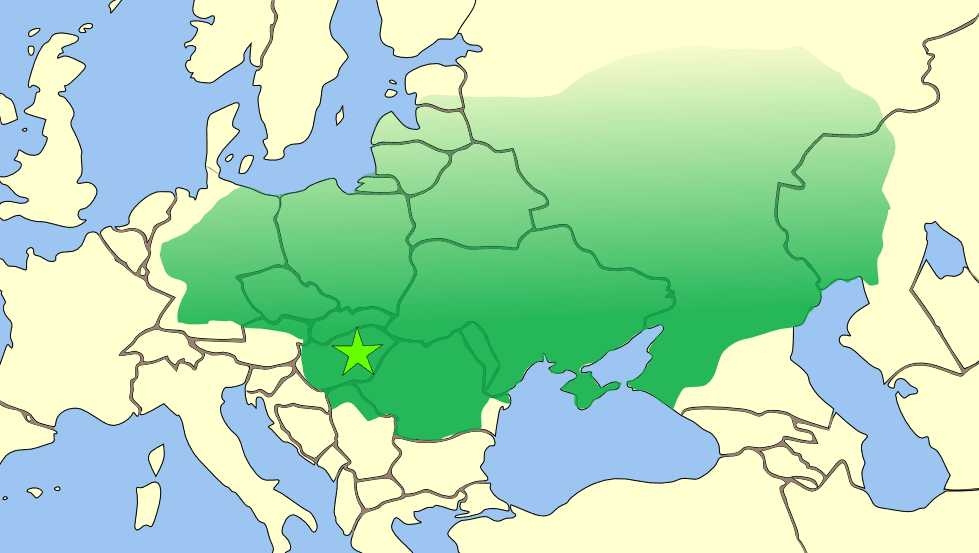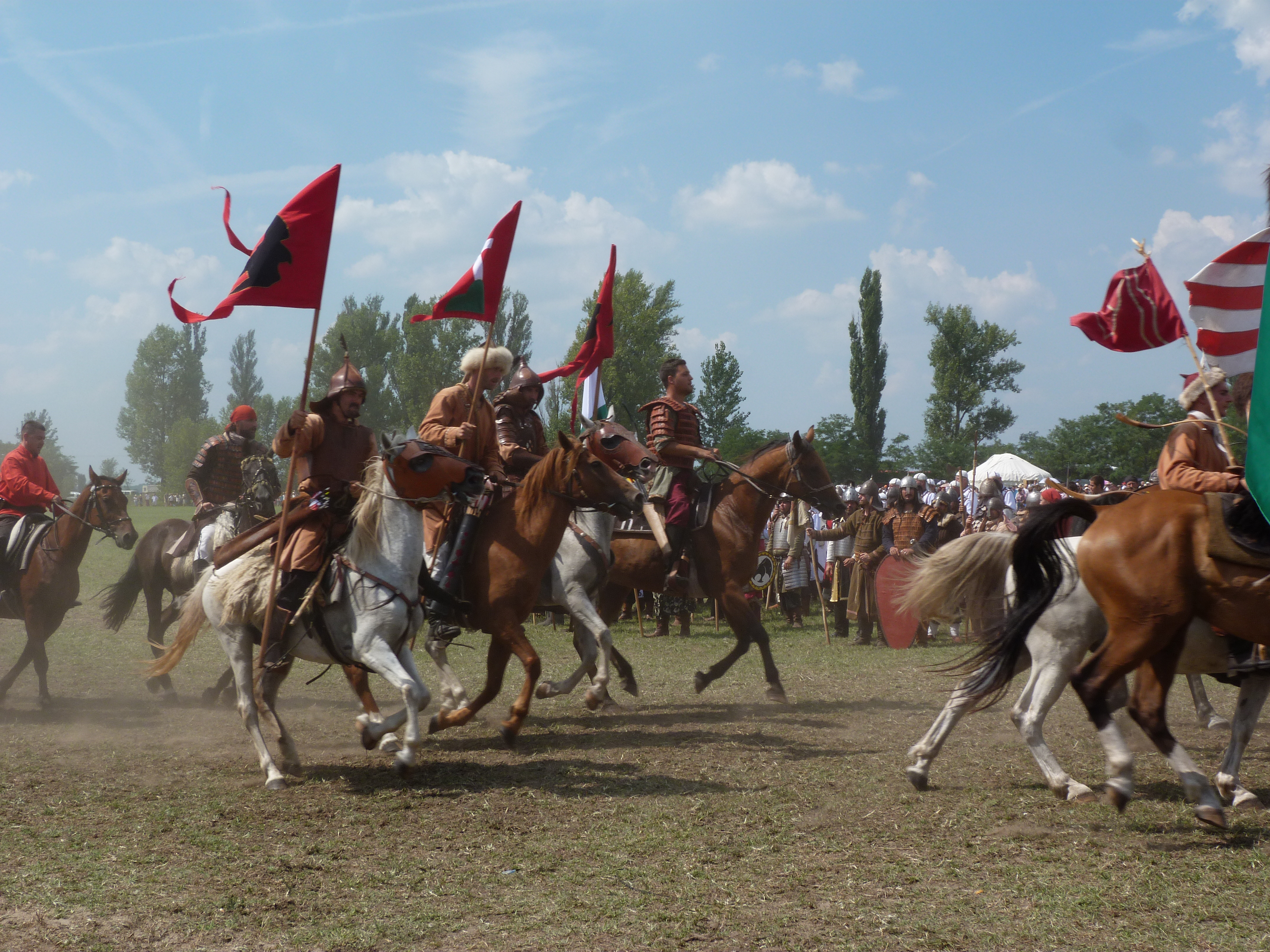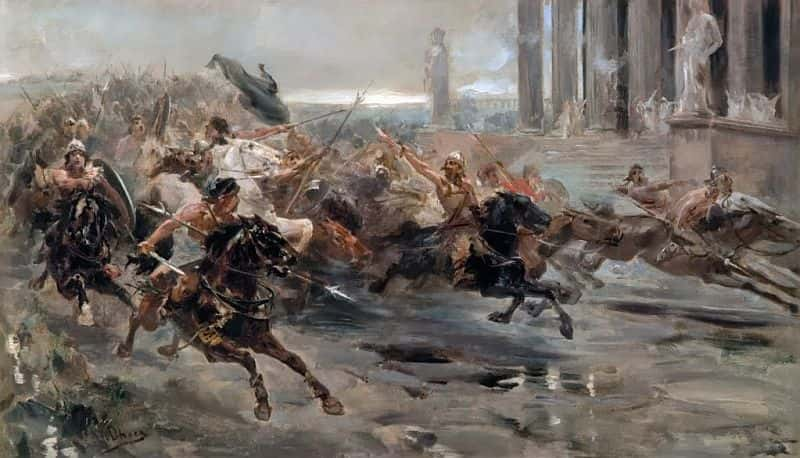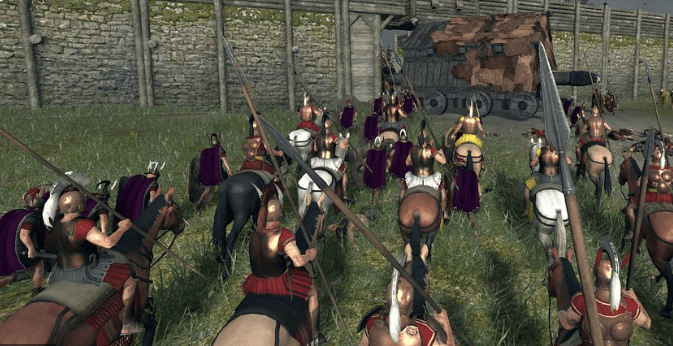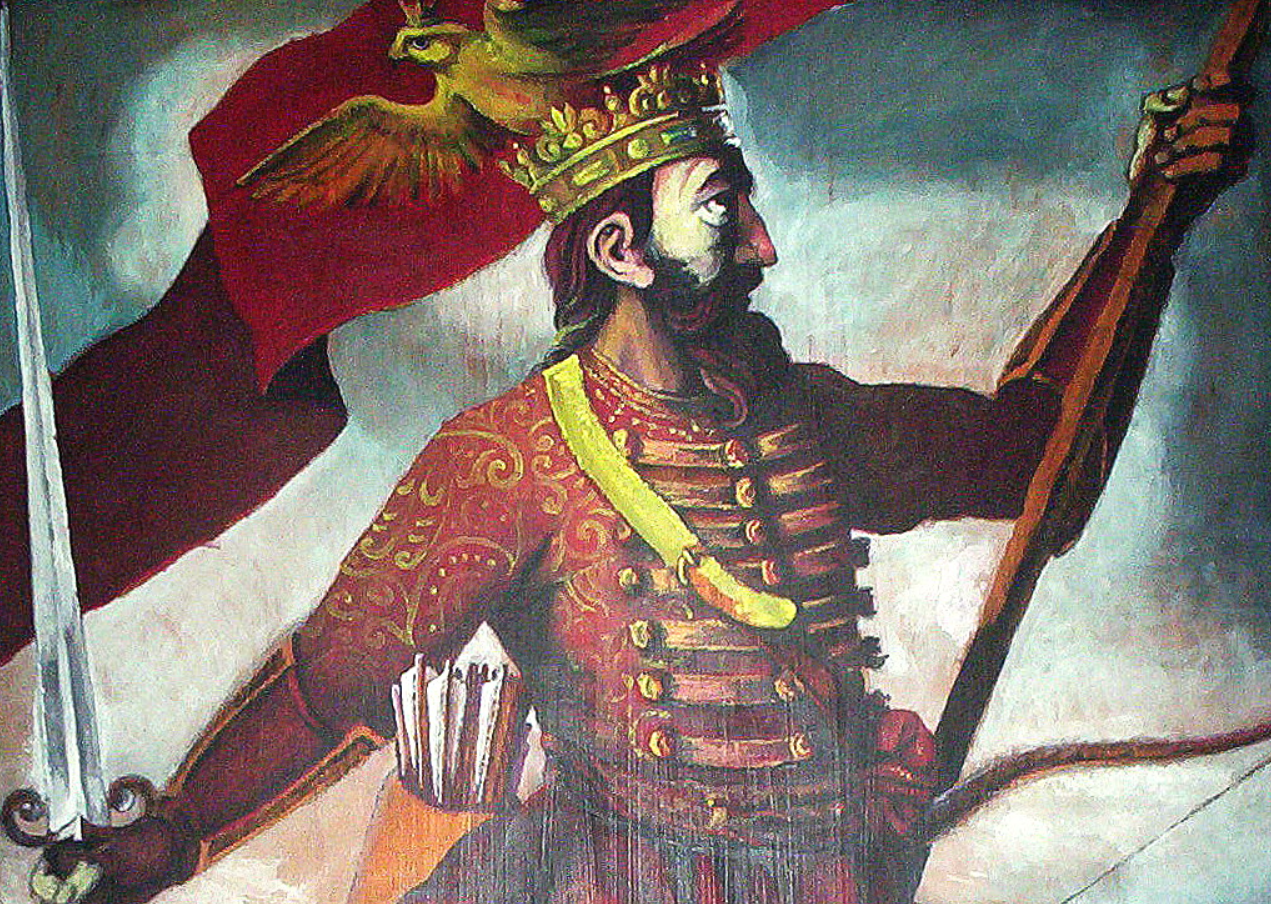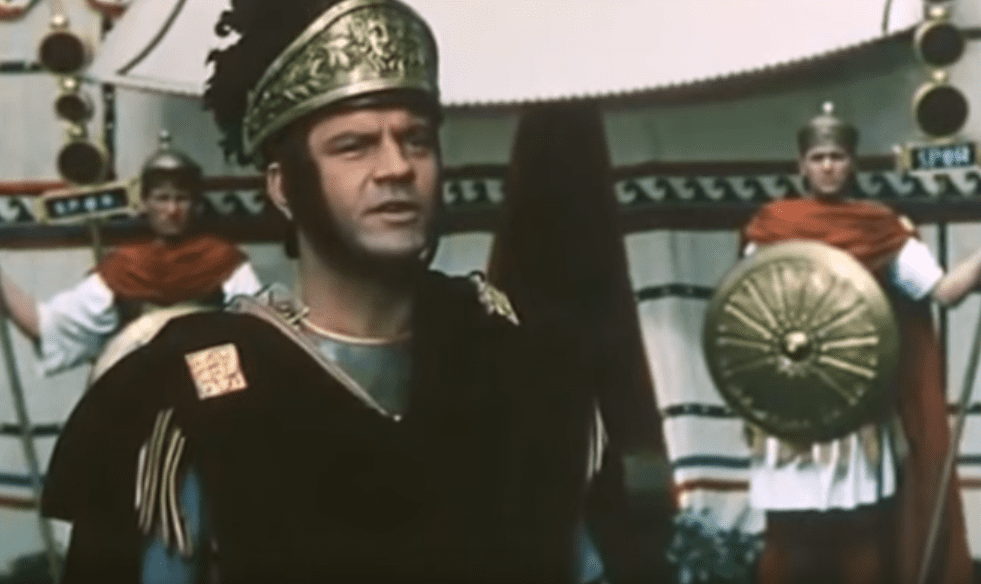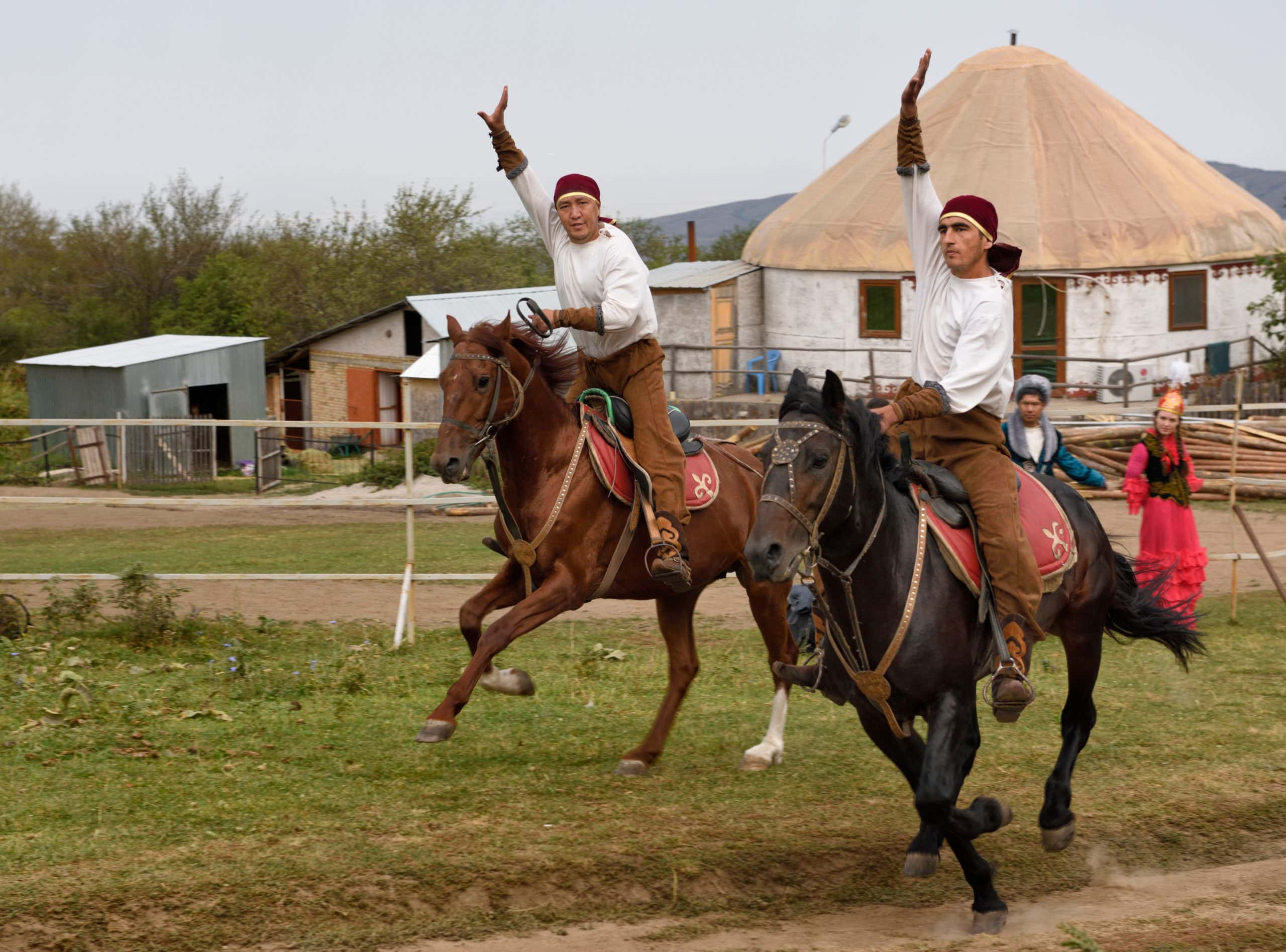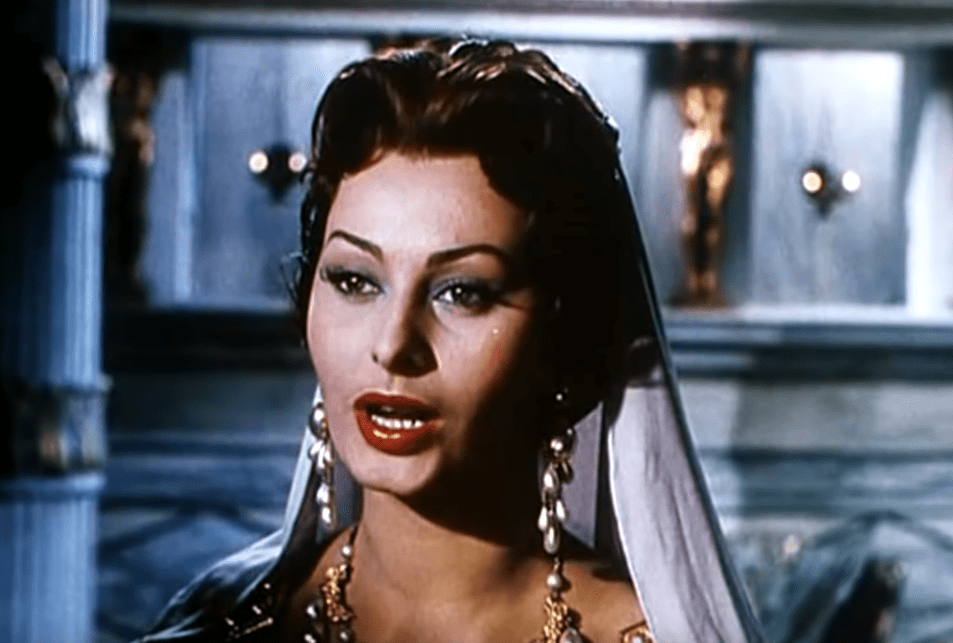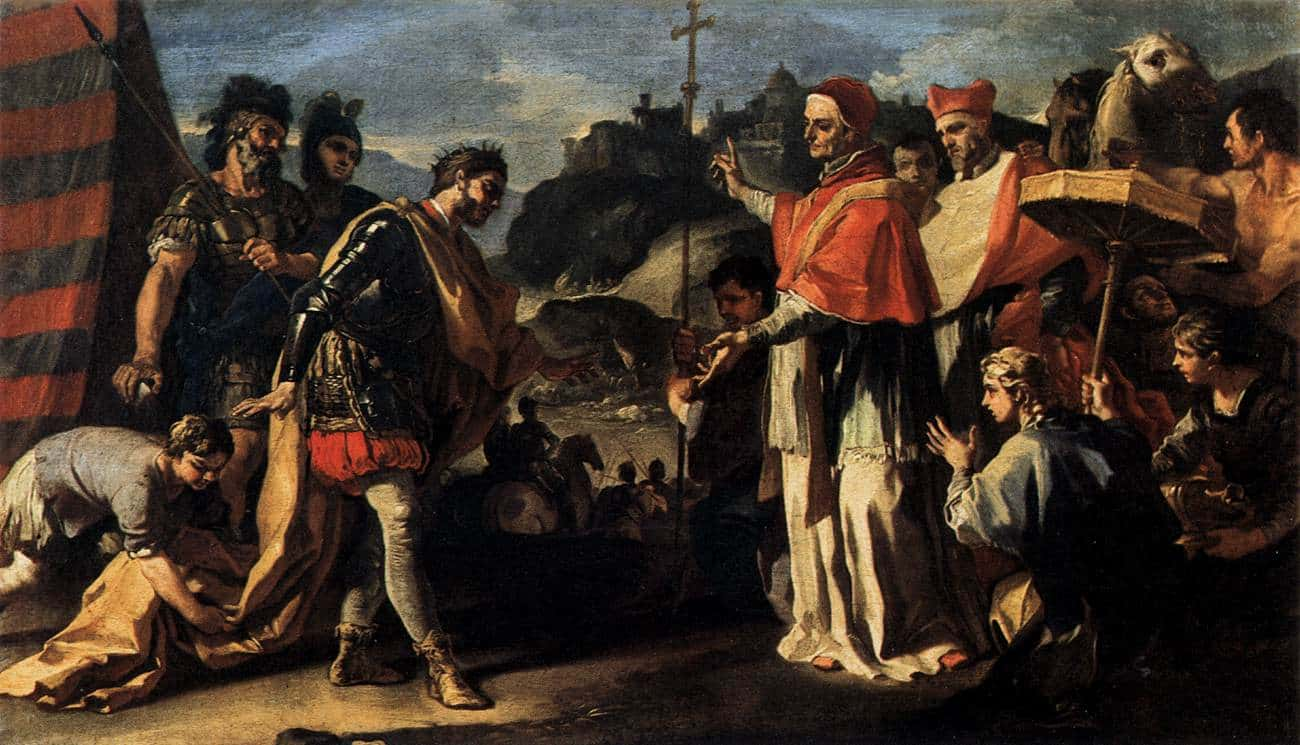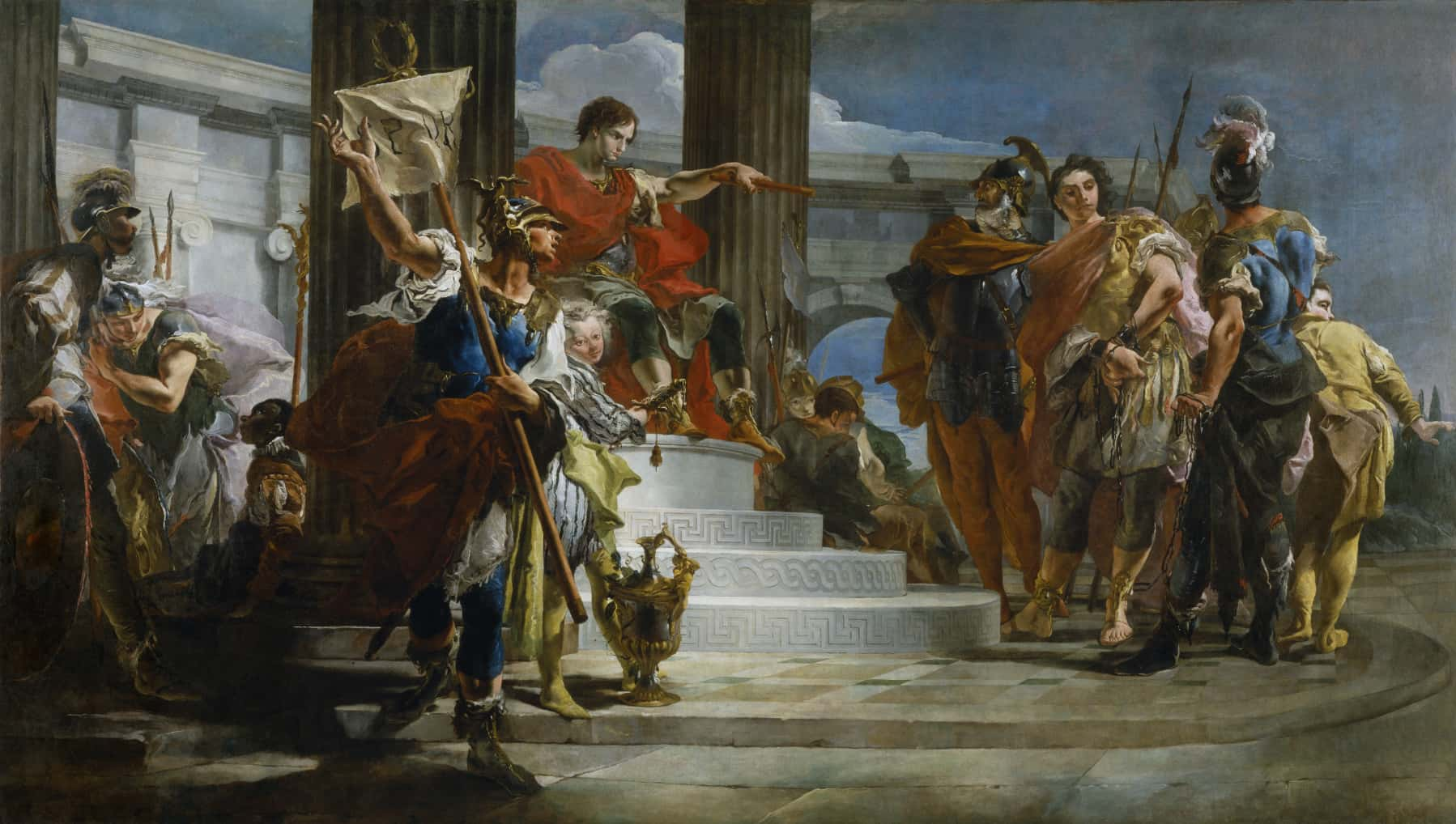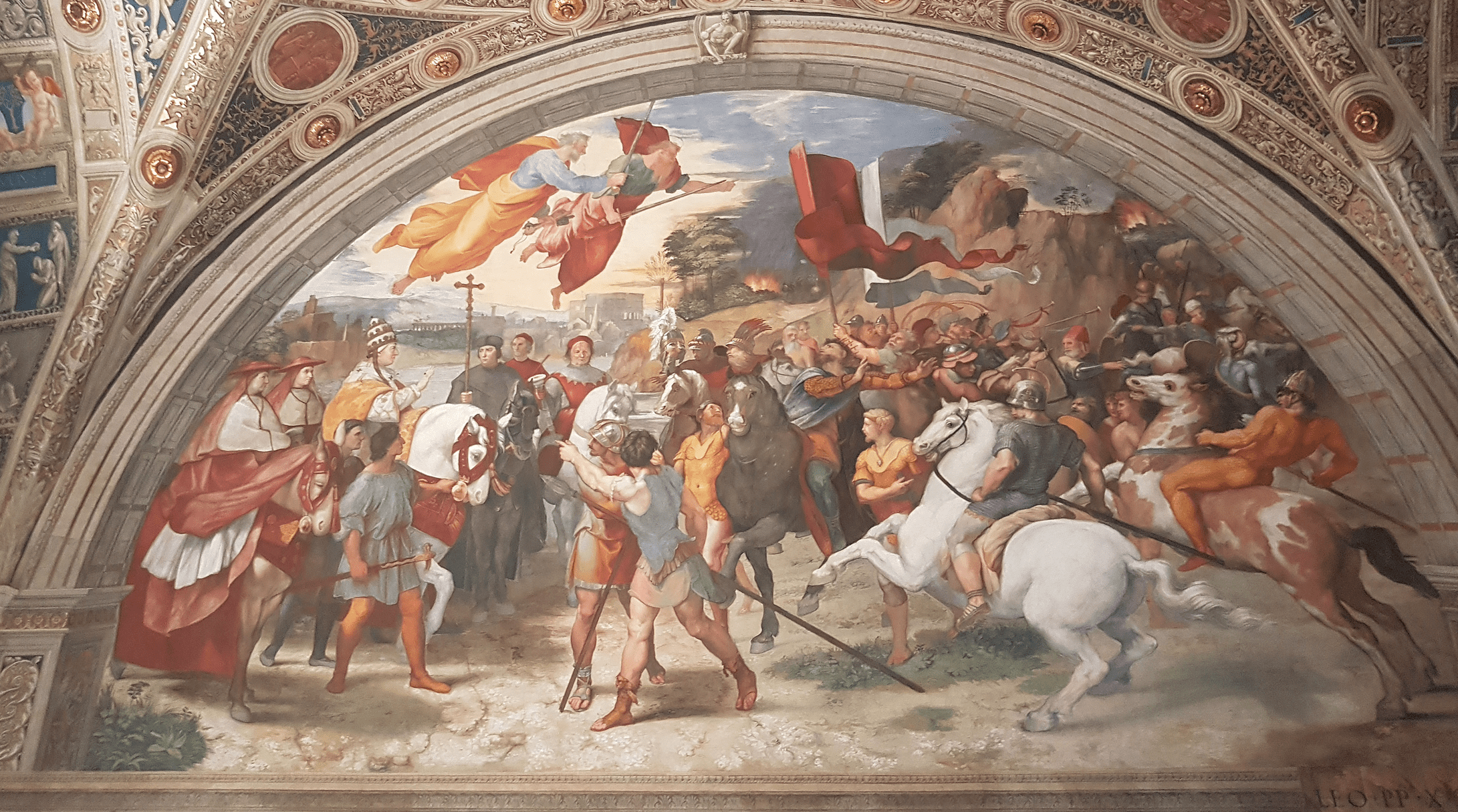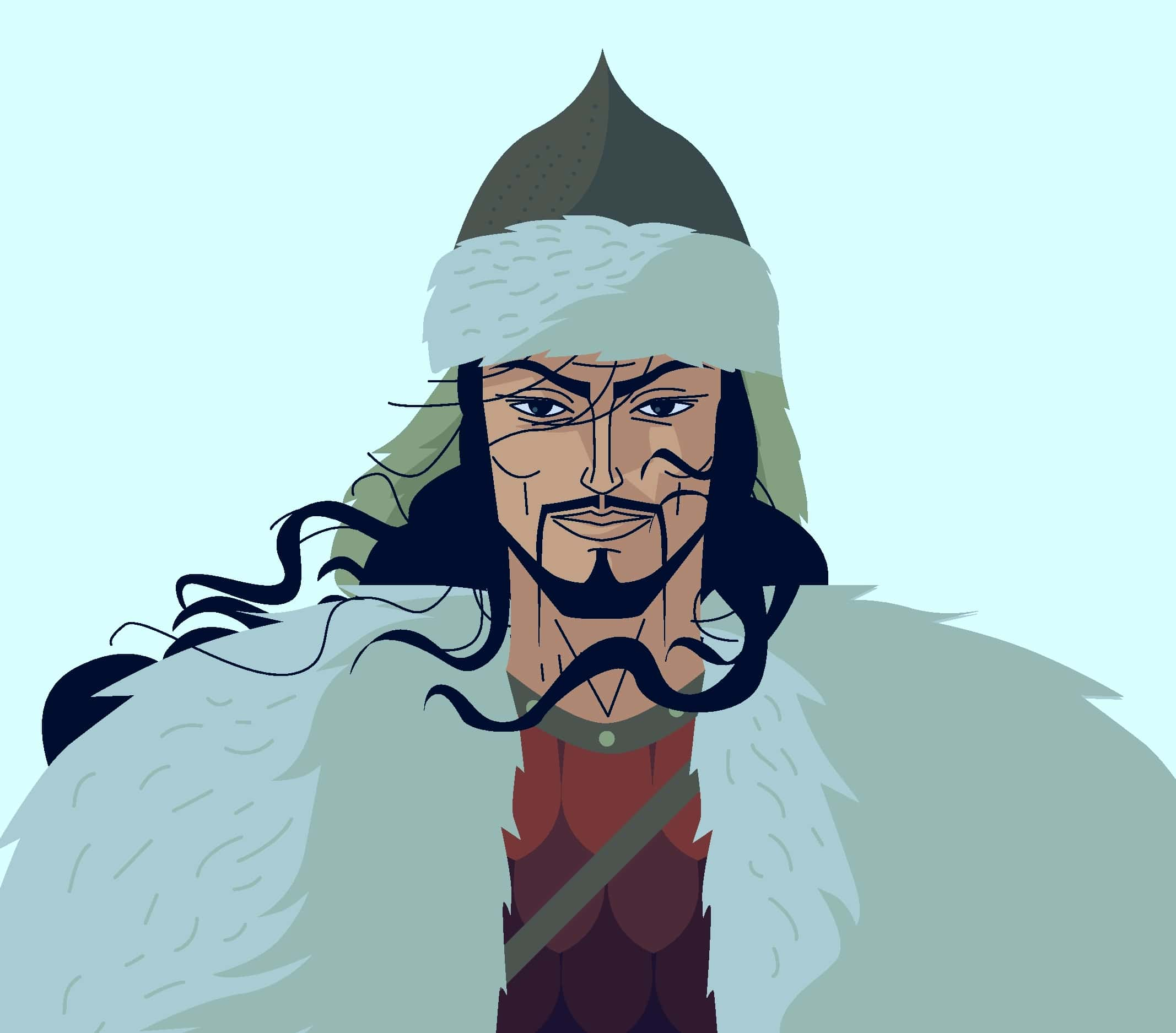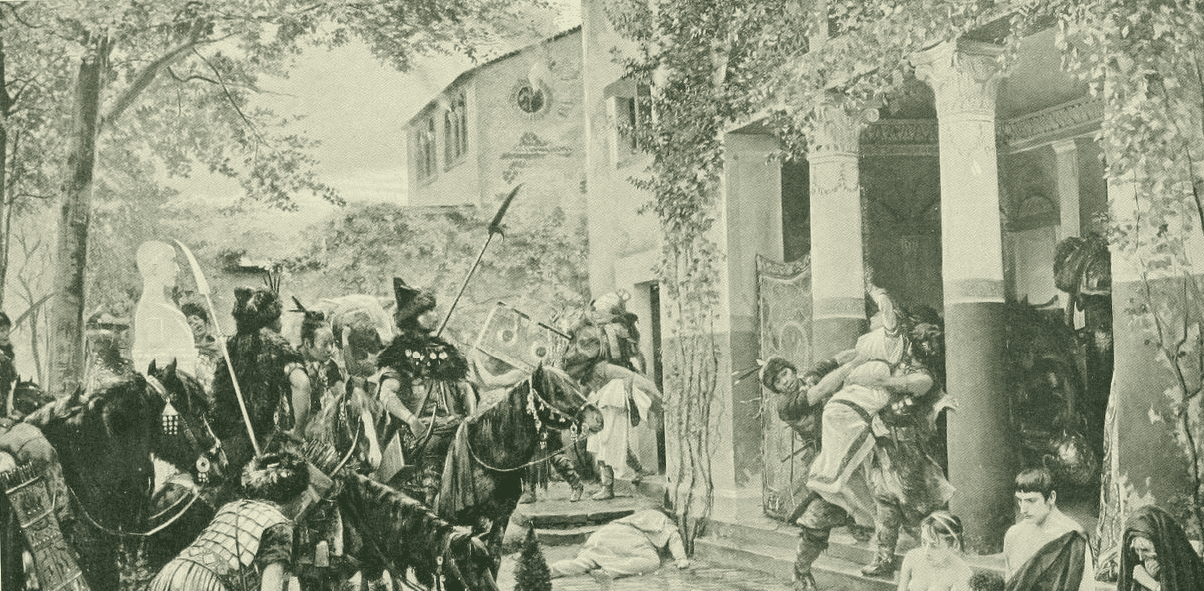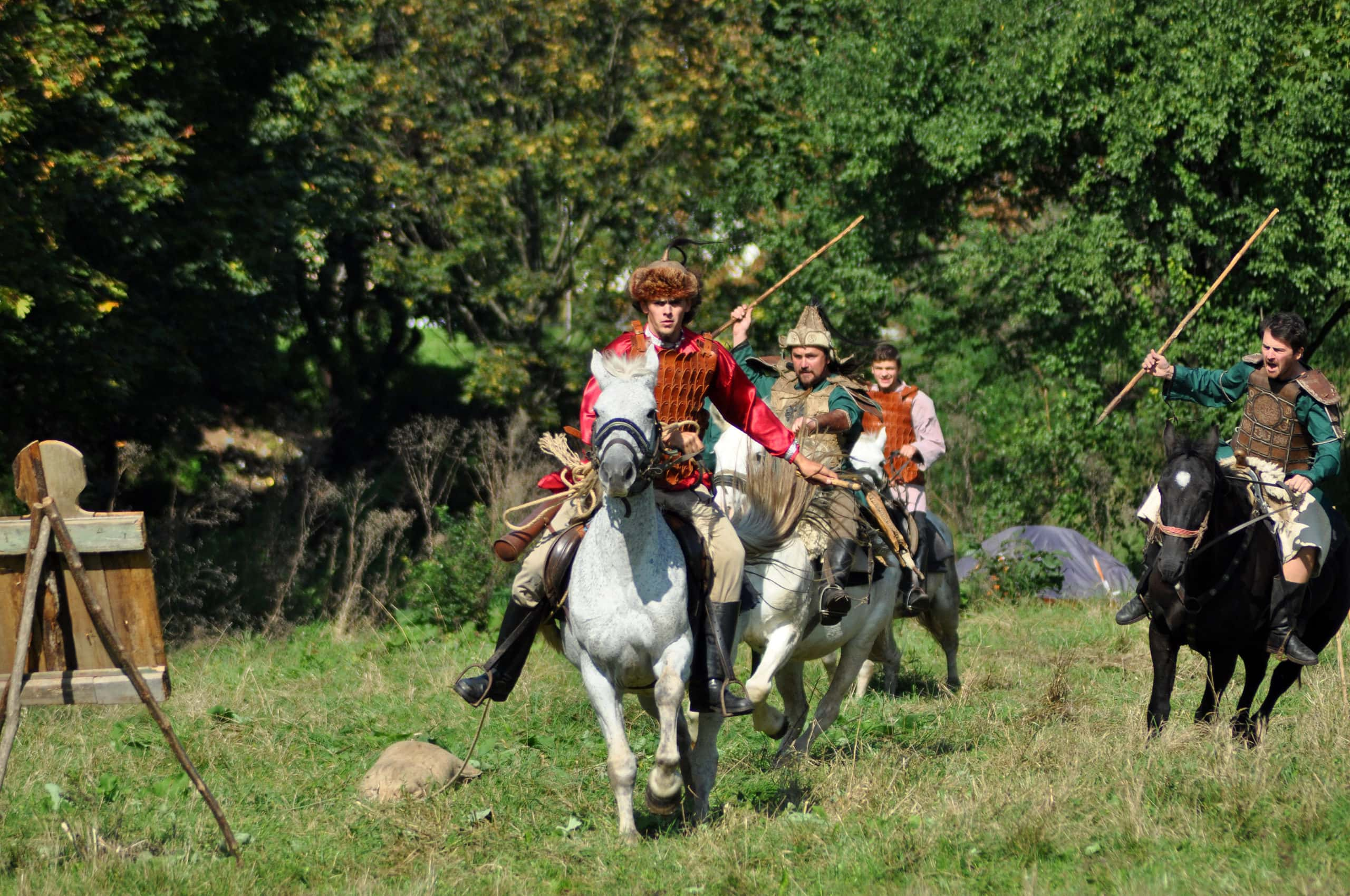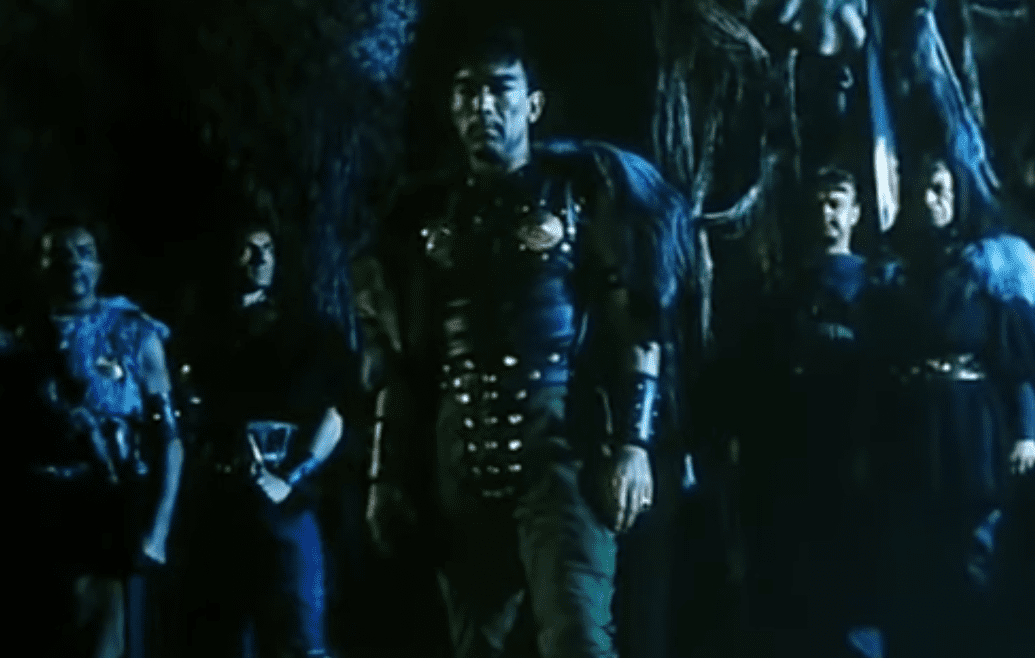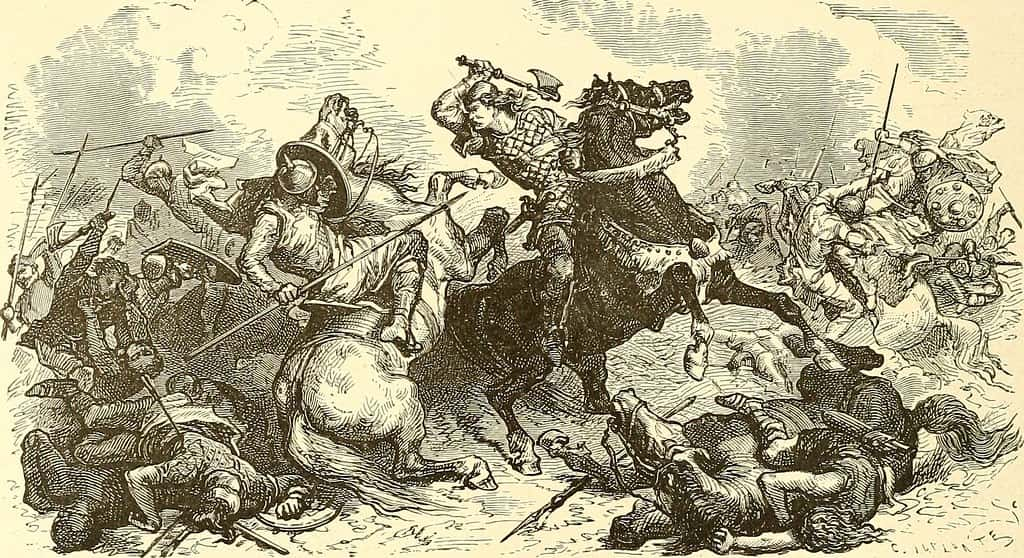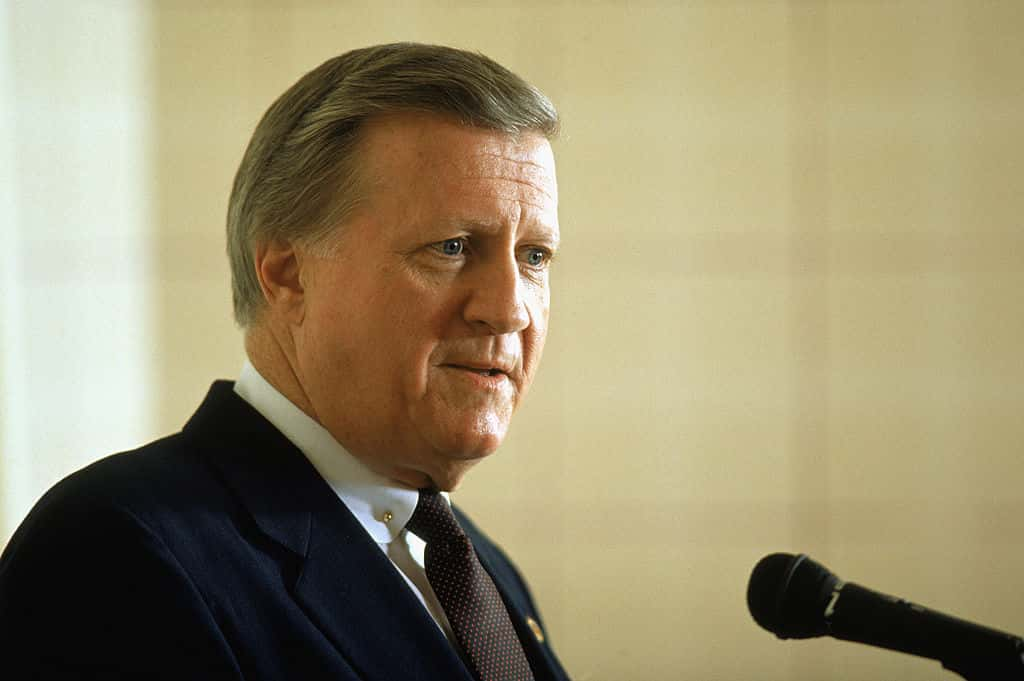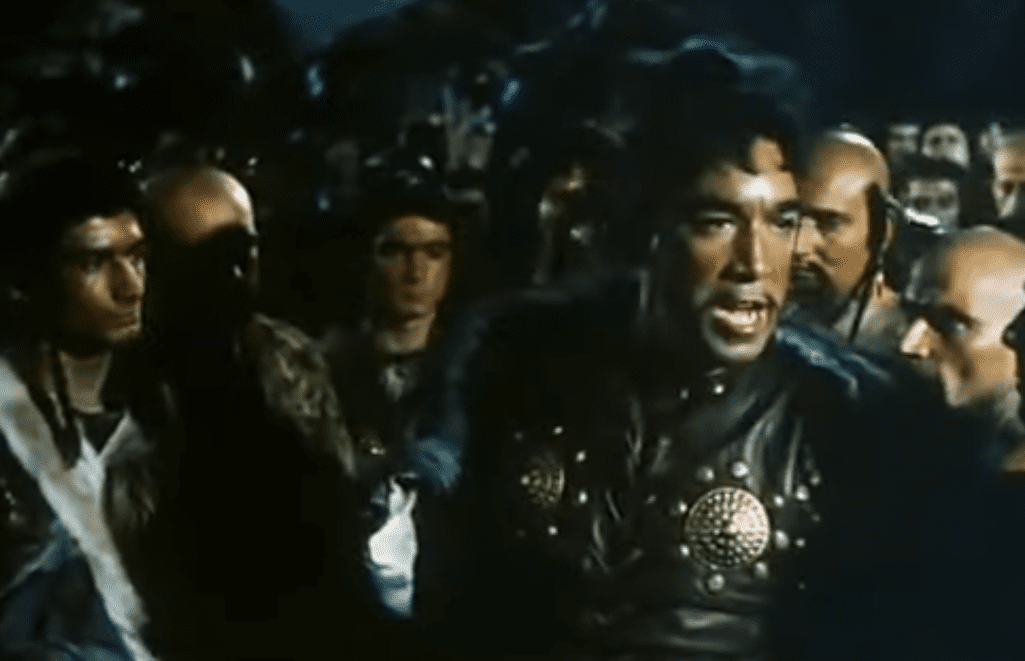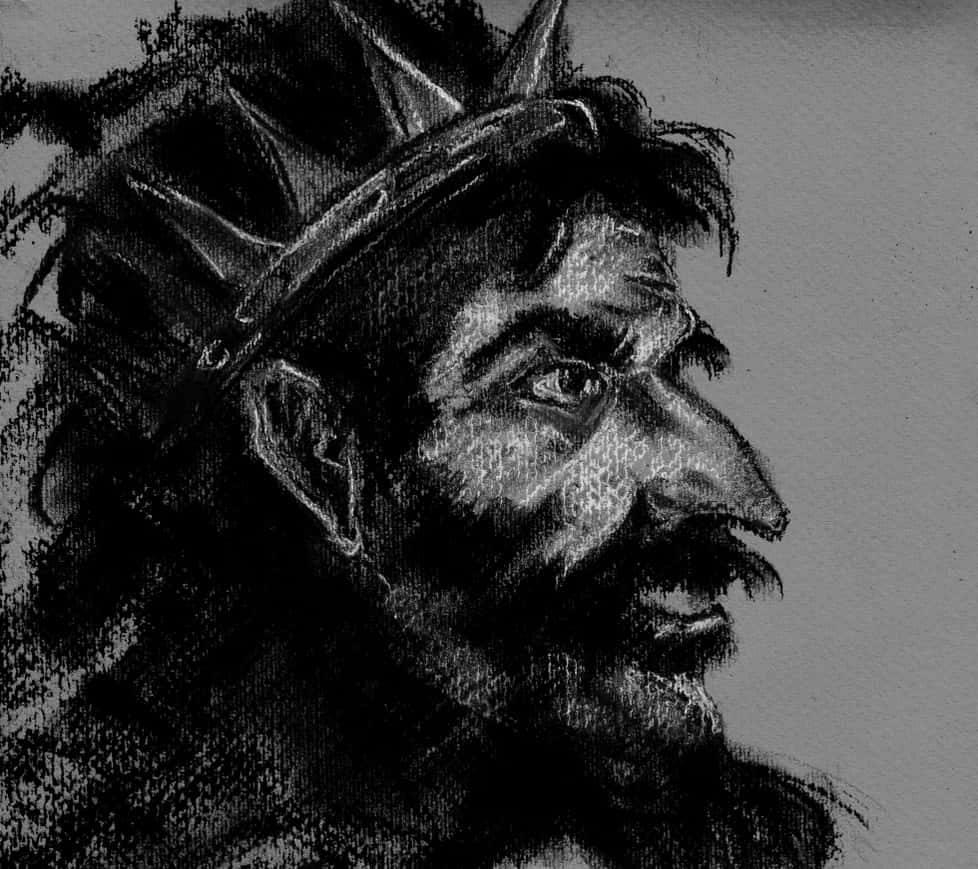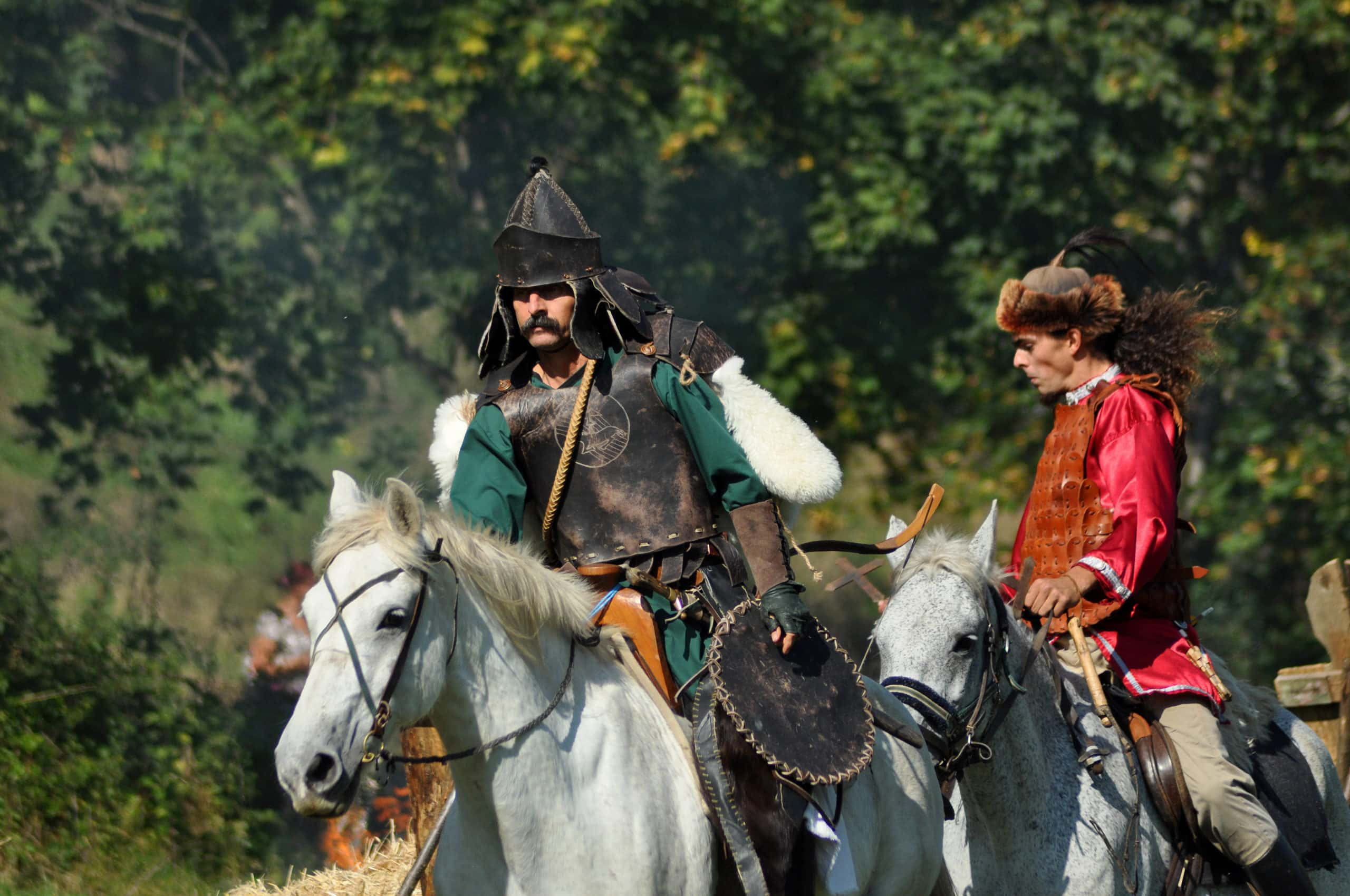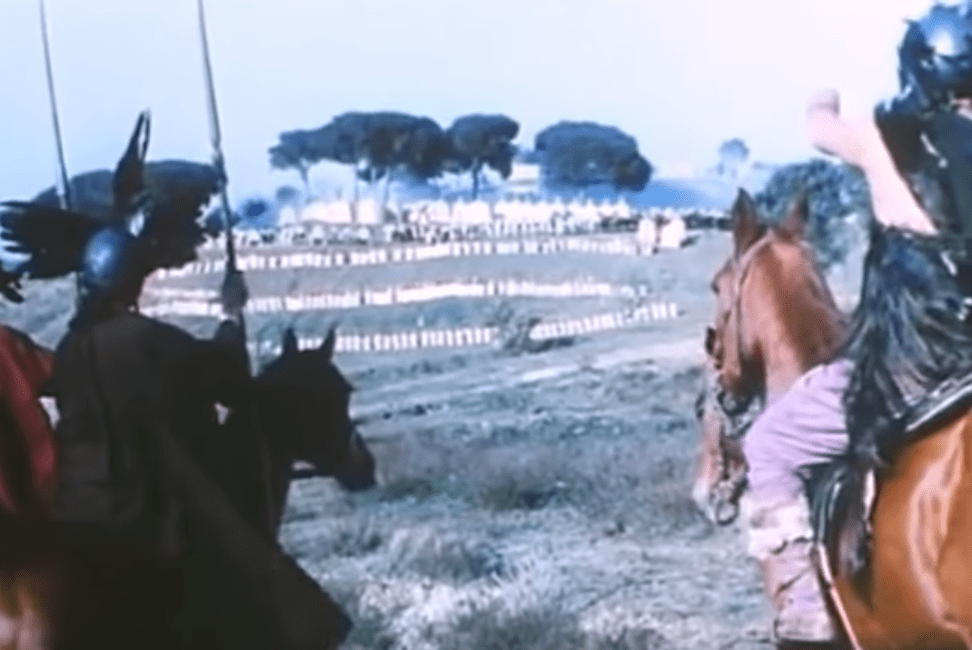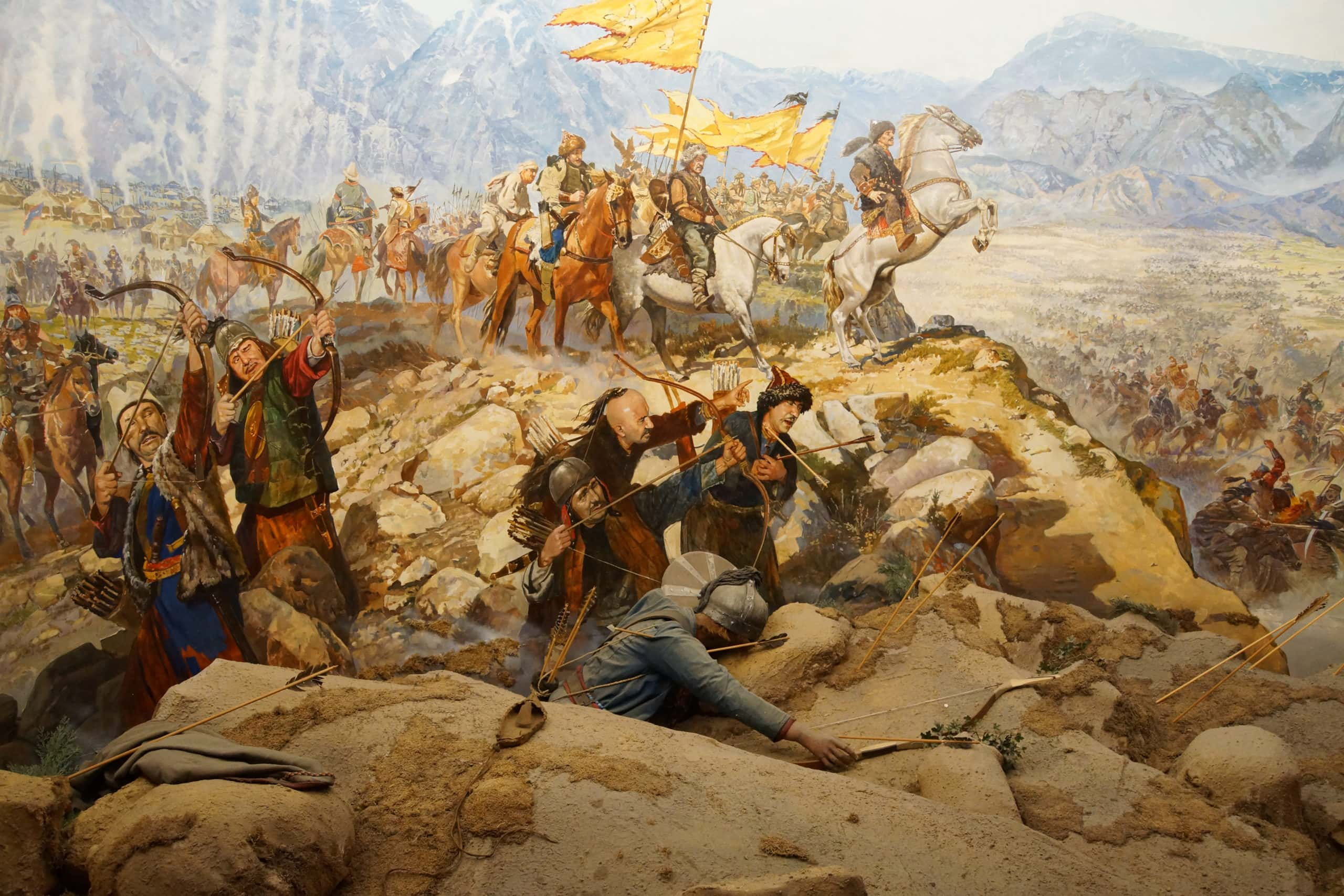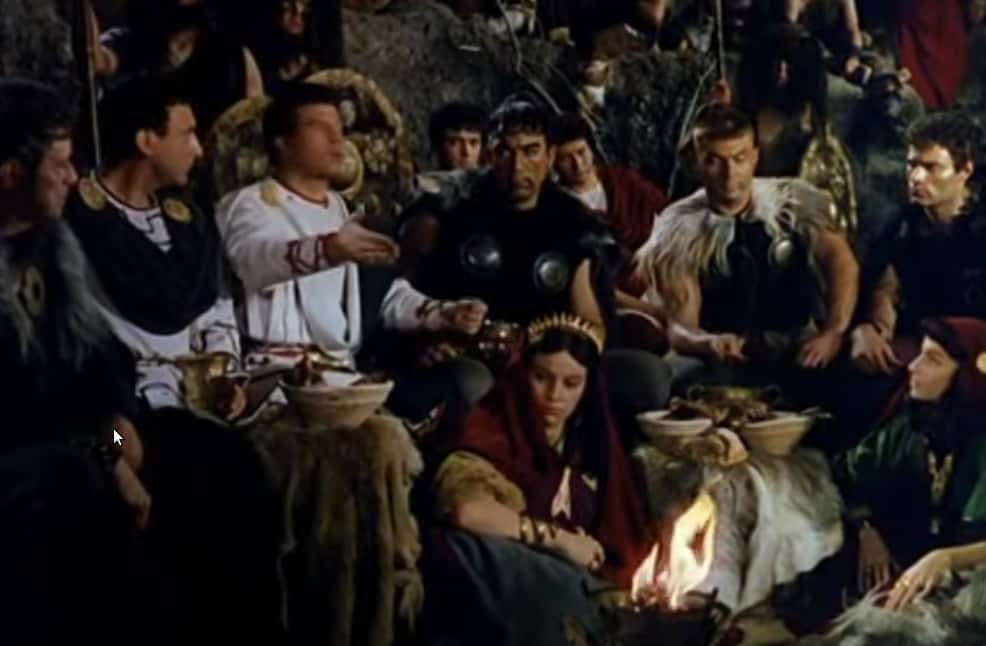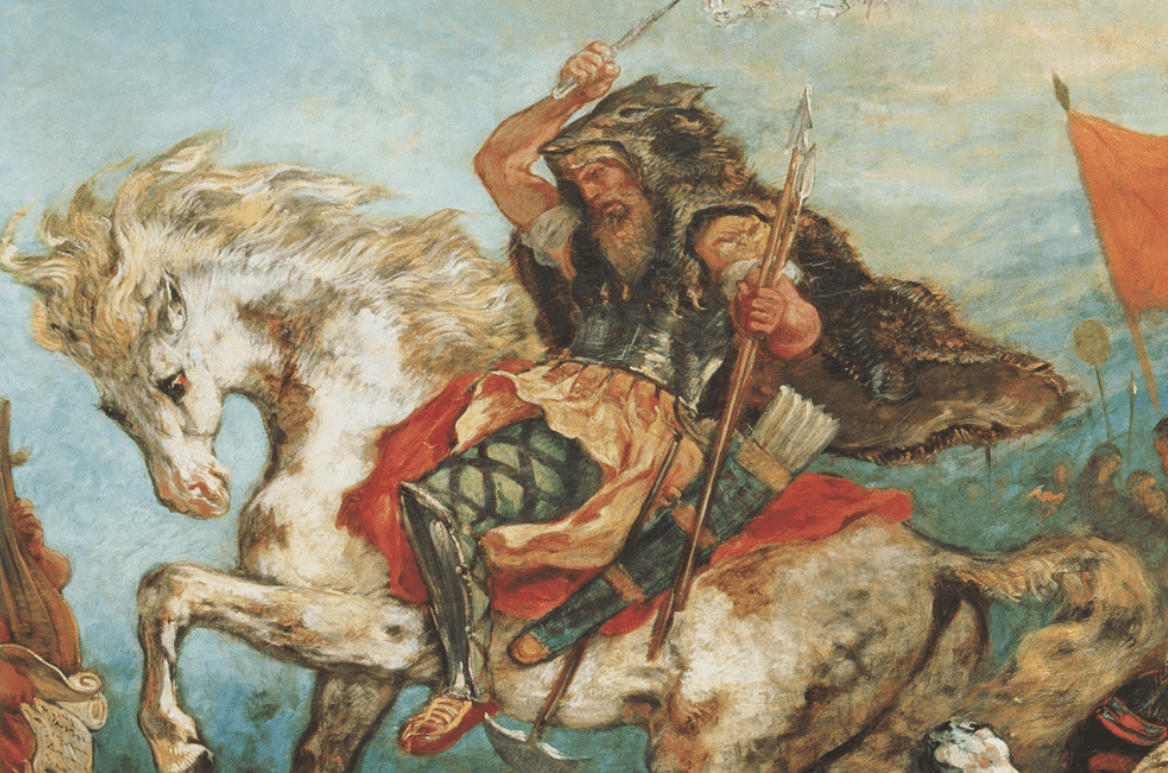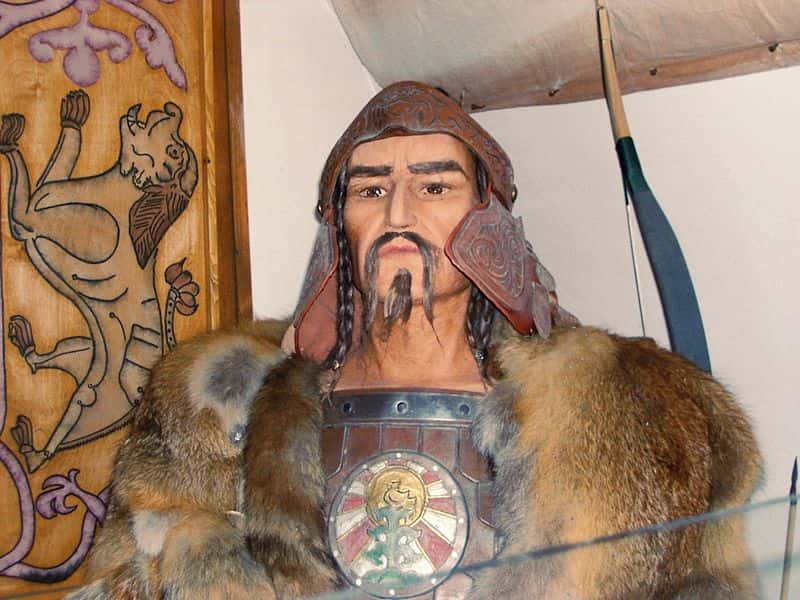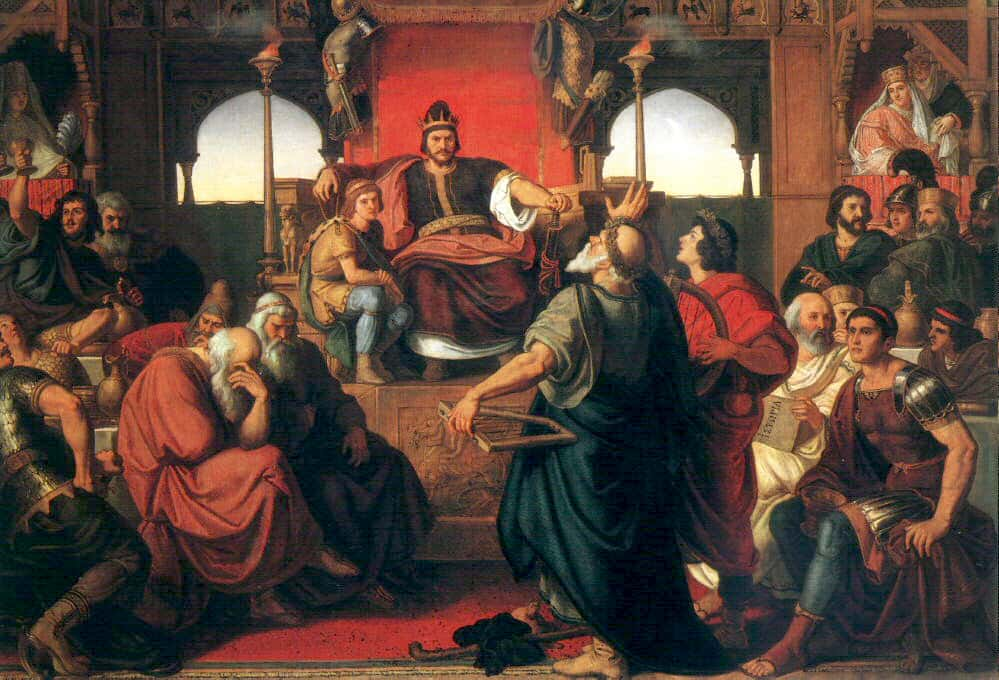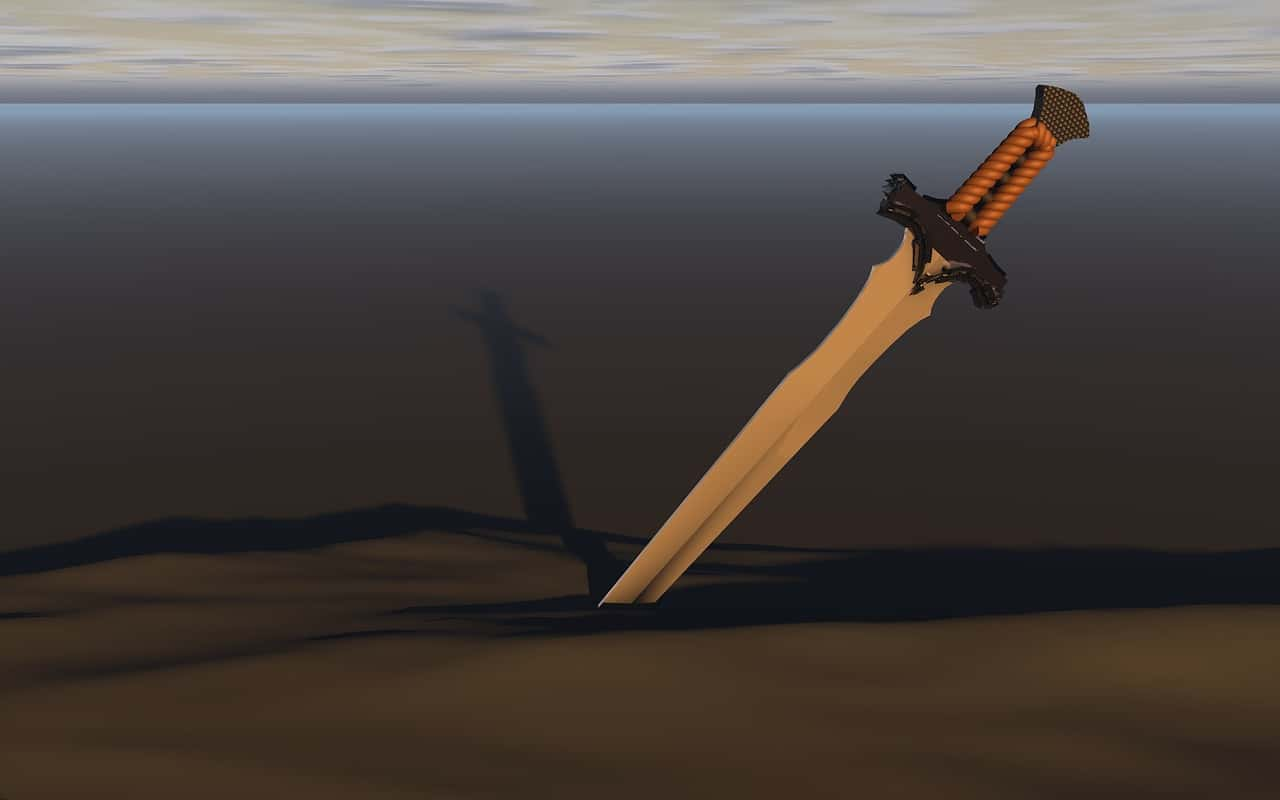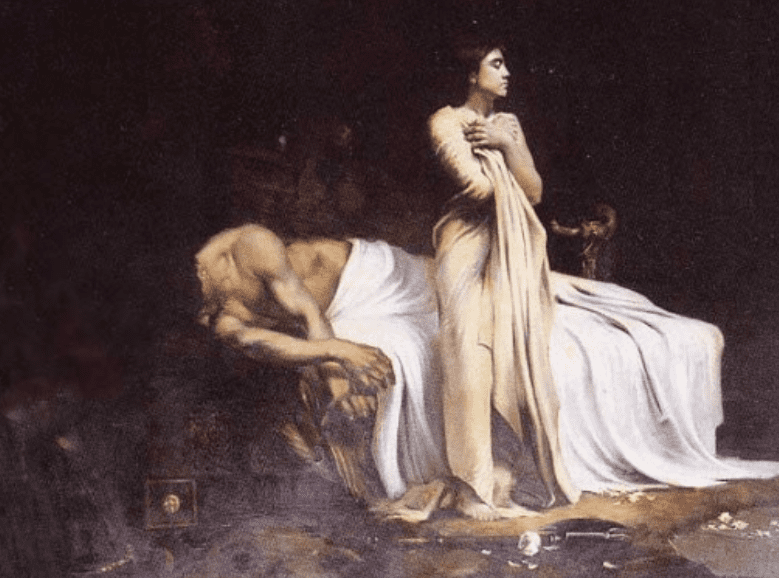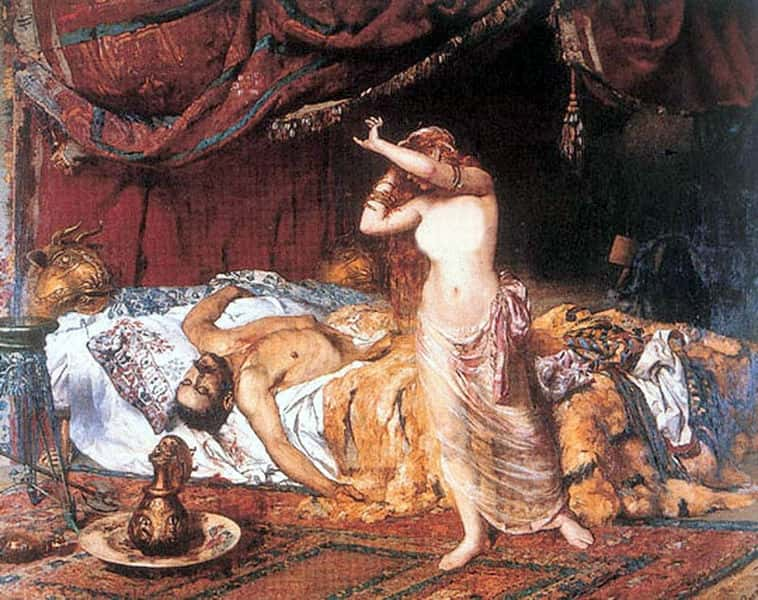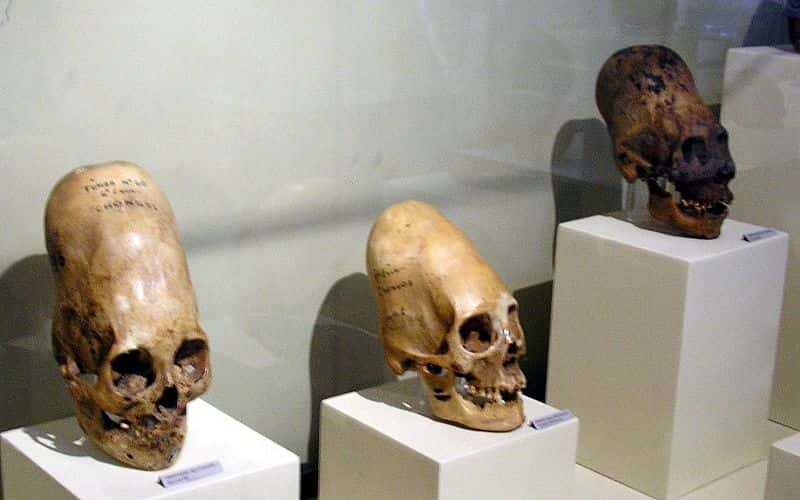thThe mere mention of the name Attila the Hun conjures nightmarish images of a demonic barbarian leading his hoards on a rampage of rape, pillage, and death across the lands of the Roman Empire. A closer look at the 5th century AD military leader, while not disputing his barbarity, offers a glimpse into the complexities of his nature and the fascinating adventures of his life. Here are 40 facts about the Attila the Hun that help shed some light on this frightening, complex character.
Attila The Hun Facts
40. Not Even a Hun.
The Huns, who terrorized Europe in the late fourth to mid-fifth centuries, were not Hungarians despite the “Hun” in both their names. Scant archaeological evidence suggests that the Huns derive from the Hsiung-Nu people whose origins trace to the late third-century BC. in northern China. Repelled by the Han Dynasty, the Hsiung-Nu splintered into factions. The northern faction was driven from China somewhere between 91-93 AD. These refugees, who migrated west to the Siberian-Kazakhstan steppes, most likely became the European Huns, according to many scholars. Others refute the link to the Hsiung-Nu culture yet still place the origins of the Huns in Kazakhstan. First mention of the tribe appears in European historical records at the end of the 3rd century AD. It is estimated that Attila was born between 370 and 400 AD.
39. Fast and Furious
Riding down from the steppes in marauding droves, the Huns began their rampage of Eastern Europe as early as 370 AD. By 408 AD the Hunnic empire extended in the west from the Alps to the Baltic Sea, and in the east from the Alps to the Caspian Sea. By 430 AD Rua, the uncle of Attila, had assumed leadership of the tribe.
38. The Hunnish Life
Hunters and gatherers, the Huns traveled with flocks of sheep, which provided food and leather. They spent their lives atop their hardy horses, likely Mongolian ponies, and were said to dismount only when absolutely necessary. Attila was trained in horsemanship and shooting from an early age.
37. Brotherly Love
Attila’s uncle ruled the confederation of the Huns until his death in 434, leaving the kingdom to Attila and his brother Bleda. The siblings co-ruled for about ten years—until it is believed that Attila murdered Bleda and assumed sole of the tribe. Before Bleda’s death, the Huns primarily attacked territories in the Eastern Roman Empire, but once in charge Attila trained his sights on both parts of the empire. The entirety of Attila’s reign spans the years between 434-453 AD.
36. Scary Screamers
Firsthand accounts describe the savage screaming and other noises made by the Huns as they attacked their victims on horseback, slashing and stabbing. Their prowess as equestrians made the Huns particularly terrifying. Sometimes they employed a lasso-like tool, with which they would entangle the enemy as they hacked them to death.
35. Nice Nickname
Romans viewed the Huns as barbarians, and Attila’s name was synonymous with destruction, chaos, and slaughter. He became known as “The Scourge of God.” As 6th century writer Jordanes declares in his Gothic history book Getica: “He was a man born into the world to shake the nations, the scourge of all lands, which in some way terrified all mankind by the dreadful rumours noised abroad concerning him.”
34. The Art of the Deal
So feared was Attila that rulers would fork over large payments just to be left alone. In 435 AD he extracted a winning deal with the Eastern Roman Emperor Theodosius II. In exchange for peace, the Romans would remit to him an annual tribute of 700 pounds of gold. A few years later Attila asserted that the Romans had not kept up their end of the bargain. He launched vicious attacks through Eastern Roman territories, forcing a hike in the fee to 2100 pounds of gold per year.
33. Love Thy Enemy
Attila and the famous Roman general Flavius Aetius may have enjoyed an unlikely friendship. Aetius, who at some point may have been a hostage in one of the Attila’s camps, studied the Hunnic customs and language and likely spent a good deal of time with his counterpart. The bromance ended in 449, probably over missing payments to Attila by the Romans. A few years after that they would meet on the battlefield.
32. Ugly Nomads
Most people who came face to face with the Huns and lived to tell the tale describe them as “ugly.” In fact, the Roman historian Ammianus describes them as “so prodigiously ugly and bent that they might be two-legged animals, or the figures crudely carved from stumps which are seen on the parapets of bridges.” His view, of course, might have been colored by the hostility of the relationship between the Romans and the Huns.

Sign up to our newsletter.
History’s most fascinating stories and darkest secrets, delivered to your inbox daily. Making distraction rewarding since 2017.
31. The Tide of History
Attila and his Huns made their mark on world history by their contribution to the fall of the Roman Empire, which is dated at about 476 AD. The Huns were responsible for driving migrating tribes into Roman lands, destabilizing the already weakening empire, creating an economic crisis, destroying important property and transforming society at a tremendous rate. The empire simply could not sustain the combined stress of all these factors.
30. A Romantic at Heart?
When Attila was rejected by a Roman emperor’s sister, it caused him to go on a murderous rampage throughout Western Europe. Although Attila already had several wives at the time, he tried to claim another in 450 AD. This transpired when Honoria, the sister of Emperor Valentinianus III, sent him a ring and sought his help in extricating her from an impending marriage that had been arranged by her brother. Misinterpreting her plea for help as a marriage proposal, Attila proclaimed Honoria his betrothed. He also claimed half the Western Roman Empire as his dowry. Naturally, the claim was refused by Valentinianus, though the furious man almost sent his sister into the arms of the Hun. The marriage did not take place, but Attila used the rejection as justification for his next rampage through the Western Roman Empire.
29. If You Ask Nicely
After his marriage rejection, Attila cut a path of destruction through the Western Roman Empire as far south as the Loire River. In hopes of curtailing him, his old friend the Roman general Aetius joined forces with Visigoths whose borders were being encroached. Attila was busy attacking the city of Orleans when the twin forces of Aetius and the Visigoths approached. Attila made a calculated withdrawal. He was about to move on the nearby city of Troyes when the saintly Bishop Lupus pleaded with Attila not to destroy the city. Attila agreed, but took the bishop along with him as a hostage.
28. So We Meet Again
Attila’s most devastating defeat was at the hands of his old friend Aetius in 451. After his withdrawal from Orleans, he moved his troops to an area known as the Catalaunian Plains (or the Plains of Châlons) anticipating a battle. There he would come face to face with the forces of Aetius and the Visigoths. During the long and bloody battle the Visigoth King Theodoric was killed and Aetius’s horse was slain, but Attila was outmaneuvered and forced to cede victory. He also freed poor Bishop Lupus and asked the saintly man to pray for him.
27. Do You Believe in Miracles?
Attila’s routing at the hands of Aetius did not stop the marauding Hun. The following year in 452, he turned south and attacked cities in northern Italy, invading Venetia and Aquileia, Milan and Apuleia. Pope Leo I himself came to meet the Hun and begged him not to sack the city of Rome. Reportedly Attila was impressed by the Pope’s bravery. In addition, a “miracle” reinforced the Pope’s message when Saints Peter and Paul appeared to Attila, warning him that he would die if he did not heed the Pontiff’s plea. A less fanciful account maintains that Attila withdrew from Italy because supplies were running low and many of his troops were unwell.
26. If Looks Could Kill
No known portrait of Attila exists, but he has been described in writings by the Roman ambassador Priscus, who met him in 449 AD, as being short and snub-nosed with a grey-tinged beard. He was especially known for the ferocity of his stare, which was said to make people tremble. Attila revelled in the fear his gaze instilled. He is quoted as saying, “There, where I have passed, the grass will never grow again.”
25. Supply and Demand
As nomadic hunters and gatherers, the Huns had no tradition of making weapons. Their supply of arms likely came in the form of booty taken from the bodies of Romans, Ostrogoths, Visigoths or Persians they’d slain on the battlefield.
24. Star Status
Historical studies indicate that social status among the Huns was meritocratic and was based on military skill. The highest rank was held by the man with the best kill rate in battle. Attila's prowess on the battlefield was one of the reasons he was held in such great esteem.
23. Mind Games
Attila used various methods of psychological warfare. To further disarm demoralized enemies, Attila would terrorize bordering lands as a warning of what might come. His soldiers were known to tie the severed heads of vanquished fighters to their saddles as they charged, shrieking, into battle. Sometimes his troops feigned retreat, and then plunged back with brutal force, confusing the enemy.
22. Title of Honor
Attila's army was organized by tribe. Each tribe consisted of 50,000 to 60,000 people. From this number, 10,000 comprised the army of mounted archers. This fighting unit was known as a “tumen.” The most esteemed title in Hun society, aside from “King,” was “Commander of the 10,000 Horsemen.”
21. He wasn’t perfect, but . . .
George Steinbrenner, he colorful, one-time owner of the New York Yankees baseball team, was known to have studied Attila the Hun in search of insights that might help his business success. According to his biographer Bill Madden, Steinbrenner remarked about the famed barbarian, “He wasn’t perfect, but he did have some good things to say.”
20. Fashion Forward
Attila was known to be modest in his dress, eschewing adornment. However, the garb of most Hun warriors reflected their rank. They wore cone-shaped metal helmets covered in leather. Their neck and shoulders were protected with chain mail, and they wore up to four layers of body armor. This armor was constructed of skin-tight, hard leather, which was waterproofed with animal fat and reinforced with plaques of bone. Their pants were baggy, and their boots, not designed for walking, were soft. Completing the regalia was a richly embroidered knee-length felt or fur coat.
19. Loyalty Oath
Attila was a stickler for loyalty. One of the conditions of diplomacy with the Roman Empires was that all Hun defectors be repatriated upon discovery. In 448 AD he threatened war with the Eastern Empire when only five of the twelve traitors Attila was expecting were sent back. Two of those returned were summarily impaled, and conjecture is that the others might have been lucky enough to flee and avoid a similar fate.
18. Helpful Horses
The horses of Attila’s troops were trained to assist in battle by biting and kicking their opponents. Loyal to their masters, these small, hairy horses were rarely sick and tolerated both heat and cold very well. They had long heads, big eyes, and long manes. Their legs were short with broad hooves and their tails were bushy.
17. Tools of the Trade
Attila’s armies used an extensive array of weapons, though chief among them was the reflex composite bow, which could shoot to a distance of 70-100 meters (230-440 feet). Made of wood, bone and sinew, the weapon was carried on the rider’s belt or saddle. In addition to the lasso, used to entangle opponents and drag them away, the Huns used short, curved swords probably of Iranian origin, maces, daggers, pickaxes, and sometimes lances.
16. Food for Thought
The Huns ate raw meat, according to ancient Roman historian Ammianus Marcellinus in his book The History of Rome, warming it by “placing it between their own thighs and the back of their horses.” No fan of the Huns, Ammianus also declared that the Huns surpassed all others in wildness, that they were “just bearing the likeness of men (of a very ugly pattern),” were singularly backward, made no use of fire and generally lived on roots found in the fields. As a Roman Ammianus might be expected to have a skewed view of the Huns.
15. Take Charge Strategies
Originally published in 1985, the bestselling book Leadership Secrets of Attila the Hun by Wess Roberts, makes the case that that tactics employed by the Huns on the battlefield can help American executives develop “win-directed, take-charge management.”
14. Just a Simple Guy
According to the Roman writer and diplomat Priscus, Attila did not indulge in the luxuries of his own banquets. While his guests enjoyed elaborate meals served on silver trenches and drank from gold and silver cups, Attila ate only meat from a wooden platter and drank wine from a wooden cup.
13. Of Witches Born
According to ancient Gothic lore, Attila and the Huns were spawned from witches. Jordanes, a 6th century Goth writer, relates the story of King Filimer, who discovered witches living among his people. Exiled from the land, these unclean spirits mated with other demons, making their home on the banks of the Maeotic swamps near the Black Sea. As the story goes, their stunted, scarcely human offspring were the first Huns. Primitive in speech and intelligence, their only skill was in hunting. Once they discovered the world beyond the swamp, the evil tribe swept into Scythia “like a whirlwind of nations,” stealing, raping, and murdering all in their path.
12. Beautiful Barbarians
Attila’s Huns often wore colorful ribbons in both their hair and beards. Rarely cut, their hair was parted down the middle. Their beards were often parted, as well. They smeared their hair and faces with animal fat during rainy and cold seasons as protection against the elements.
11. Son of a Dog
Among the strange pejorative myths surrounding Attila’s origins, one 13th Century story identifies his parents as the king of Hungary’s daughter and a greyhound. Italian lore and artwork depict Attila as having the head and ears of a dog; in other portrayals he has been given horns.
10. Playing Favorites
Attila blatantly favored one of his sons over the others, as reported in firsthand accounts of the Roman diplomat Priscus. This bias was because a prophecy had revealed to Attila that while he and his family would be vanquished his son Ernak, the favored one, would restore their status.
9. Unimpressed
Apparently Attila the Hun was not one to be easily amused. According to eyewitness accounts of attendees at one of his lavish banquets, the Hun remained stonefaced at entertainment, which included songs about war and exploits, the comic antics of a disheveled Moor, who mixed Italian with the language of the Goths and Huns, and a storytelling madman.
8. Acts of Mercy
In a strange show of mercy, Attila once spared a would-be assassin sent to kill him. Instead, Attila dispatched the man back to the Romans who had hatched the plot, along with a humiliating note pointing out the folly of the plan, along with a demand for more monetary retribution.
7. What’s in a Name?
The name Attila was quite popular in Hungary in the 11th to mid-12th centuries, attesting to the leader’s heroic status among many in the region where the Hun once lived. The name is thought to derive from the Gothic language and is translated as “little father” with “atta” meaning “father” and the suffix “-ila” meaning “little.”
6. The Holy Hun
Attila had a spiritual side. He held those he deemed to have heightened spiritual qualities in high esteem. He valued their words and was known to show them mercy. Attila also put faith in prophecy. According to the Gothic historian Jordanes, Attila believed that a sword found and brought to him by a shepherd had been left for him by Mars, the Roman god of war. Attila interpreted this as a sign that he was destined to rule the world.
5. The Married Man
Attila was a polygamist and had numerous wives, the last of whom he married on the night of his death. In the 13th century Norse saga Völsunga, Attila’s wife Gudrun kills their sons and feeds them to Attila before stabbing him to death as he sleeps.
4. The Ultimate Wedding Night
Attila died in 453 AD on his wedding night. This time the bride was the young and beautiful Ildico. According to Gothic historian Jordanes, Attila had “given himself up to excessive joy” at the celebration and was “heavy with wine and sleep” when he was afflicted with a nosebleed. The blood, which “would ordinarily have flowed from his nose streamed in deadly course down his throat and killed him.” A later and more lurid account by Roman historian Ammianus suggests that “Attila, King of the Huns and ravager of the provinces of Europe, was pierced by the hand and blade of his wife.” Either way, his death seemed an ignominious one for such a renowned warrior.
3. The Secret Burial
The burial place of Attila remains unknown even today although it is believed to be somewhere in Hungary. According to accounts by Roman writer Priscus, the death of the leader was marked by profuse displays of grief. His body was laid in a series of gold, silver, and iron coffins, filled with jewels and the weapons of his vanquished enemies. His men, their faces smeared with blood, rode their horses in circles around the tent where his body reposed. According to lore, he was buried at the bottom of a river whose waters had been temporarily diverted for this purpose. Those who buried him were killed so that they would never reveal the location of the sacred tomb.
2. End of an Era
Within twenty years of Attila’s death, the Hun empire disintegrated due to the strain of power struggles and continued battles with the Romans. Attila’s sons Irnik and Dengizik, who shared leadership of the principal Hun tribes, were unable to reestablish the empire although Dengizik attempted to do so before being slain in battle.
1. Head Sculpting
Some Huns practiced cranial deformation, a method of intentionally altering the shape of a child’s skull by force. About a month after birth, a child’s head would be bound between boards for about six months, if a flattened or elongated skull was desired. Cloth binding would produce a rounded or conical-shaped skull. This practice may explain some of the strange perceptions others had about the appearance of Huns.
Sources: 1, 2, 3, 4, 5, 6, 7, 8, 9, 10, 11, 12, 13, 14, 15, 16, 17, 18, 19, 20, 21, 22, 23, 24, 25, 26

